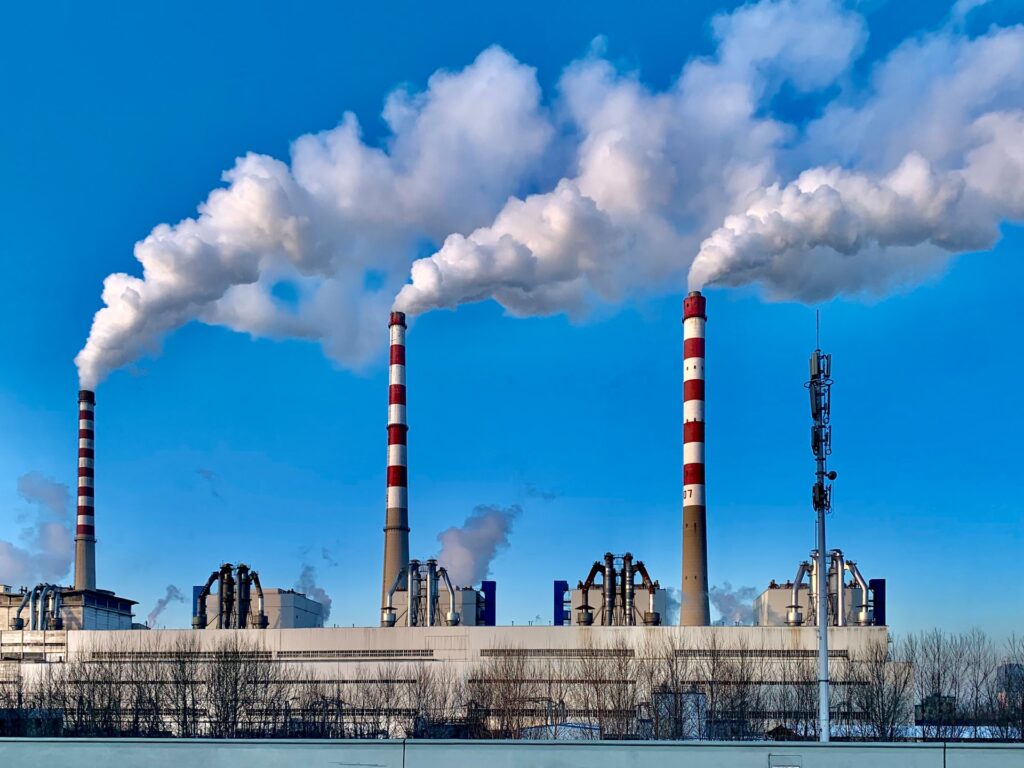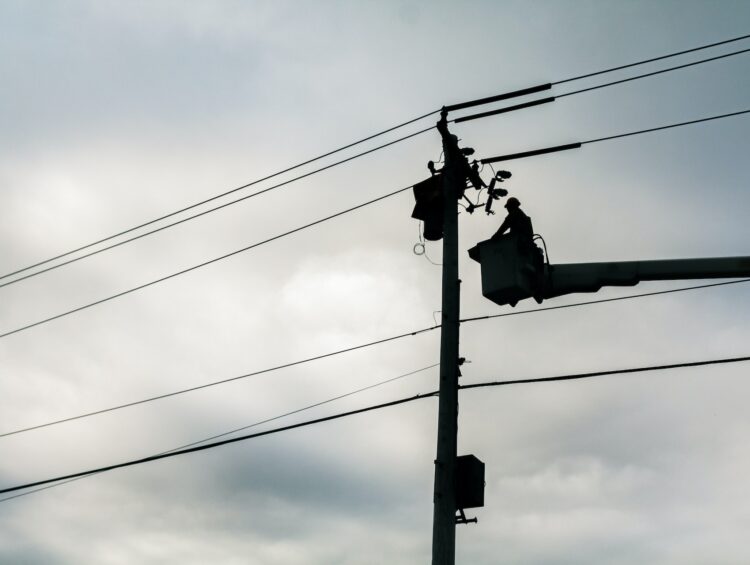Are you thinking of starting a career in public utilities? First, you may want to ask yourself how many jobs are available in public utilities.
The operation of contemporary society depends on the provision of public utilities. We all rely on their secure and dependable services every day.
Jobs in public utilities include those that offer the general public essential services, including water, electricity, gas, and sewer.
These jobs are often located in public utility departments or government organizations. Public utility employment doesn’t often pay much, but the benefits and job security are typically excellent.
In today’s article, let’s look at how many jobs are available in public utilities, the various career paths accessible, and the range of available positions.
Contents
Public Utilities – What Is It?
Infrastructure and facilities for general public usage are included in the business category known as public utilities.
To meet their daily needs, governments, businesses, and consumers offer products, services, and resources. Water, electricity, garbage disposal, and other services are examples of public utilities.
In the United States alone, the public utility sector employs more than 2 million individuals, or 1% of all US workers. Although this economy sector offers vital services to society, not all its employees perform what you might consider the typical tasks associated with Public Utility labor.
This may include personnel in charge of billing, customer service, or IT specialists assisting with their infrastructure systems, which keep everything operating correctly.
How Many Jobs Are Available In Public Utilities?
A preliminary estimate from several sources suggests that just over 800,000 jobs are available in the public utility sector in the United States, even though it is impossible to provide a completely accurate number.
The Bureau of Labor Statistics reports that businesses that provide water, sewer, and other sanitation services employ about 292,500 workers. Additionally, roughly 304,600 people were working for gas and electric businesses to provide services for gas and electricity. And 168,000 people work for telephone service providers who supply telecommunications.
There are 807,100 people employed overall in the sector, including management-level experts.
Even though these figures demonstrate a commitment to future growth and opportunities, researching careers within these areas may still be required before deciding on a career path.
Additionally, according to the Bureau of Labor Statistics, 87% of all utility service providers employed non-union workers.
Depending on your qualifications and professional scope, there are several job choices in public utilities in the USA. Learn about the positions available in public utilities in the US, their nature, what they are hiring for, and how much they pay.
What Kinds Of Jobs Are Available In Public Utilities?
Depending on the sort of utility being delivered, there are numerous distinct types of public utility employment.
For instance, working as a water treatment plant operator or a water delivery truck driver is an example of water utility employment. Electricians or power plant operators are examples of jobs in the electric utility industry. Working as a gas station attendant or a gas line repairman is an example of gas utility occupation. Working as a sewage treatment plant operator or septic tank cleaner is an example of a job in the sewer utility industry.
Types of Positions in Public Utilities
You can discover various positions that match your experience, education, or personal interests. In the field of public utilities, there is a wide range of well-paying and desirable positions for engineers, technicians, and inspectors. Only a few of the several employment categories that might be available are shown below:
- Operators of petroleum pump systems
- Operators of power plants
- Pipeline Inspectors
- Water Utility Workers
- Electricity Distribution Specialists
- Telecommunications Installation Specialists
- Power Distributors and Dispatchers
- Power Plant Maintenance Supervisor
- Electric Power Plant Manager
- Natural Gas Distribution Manager
- Manager of renewable energy
- The operator of a nuclear power reactor
- Wind turbine technician
- Solar installer
- Geothermal power plant manager
- Wind farm Manager
- Electrical Manager
- Energy Auditor
- Technician for hydroelectric plants
- Water engineer
- Mechanical Engineer
- Electrical Engineer
- Gas Plant Manager
- Engineer, Civil, Architect, Surveyor,
- Environmental Scientist
- Utility Engineer for Forester Communications
- Meter Reader
- Water Treatment Operator
Which Positions In Public Utilities Are In Demand?
Numerous employment positions are available at Public Utilities. Here are two high-demand jobs in Public Utilities.
- Electric utility personnel are in higher demand than ever and usually must complete at least a two-year apprenticeship program. This career is part of operating, examining, and repairing power-producing machinery and electricity lines. The average annual salary for an electrician is $33,000 to $65,000.
- Operators of water or wastewater treatment plants are another booming profession. Due to the increased demand for water during peak hours at pools and spas around the nation, this role frequently works long hours seven days a week during the summer.

What Are The Benefits Of Working In The Public Utility Sector?
Working in the public utility business is a fantastic idea because it has several advantages. These include,
- One perk of these employment opportunities is the steady income they provide.
- Public utility pension and health insurance programs are another great advantage.
- You can also assist others when you hold a position in a public utility. Due to their connection with society, public-facing jobs are frequently gratifying.
- As government agencies or organizations are typically involved, the public utility industry is typically entirely secure. For workers, a sense of employment security can be gratifying.
What Educational Requirements Are Required For Positions In Public Utilities?
The kind of education needed for the position will depend on it. For some positions, such as those of operators of water treatment plants, an associate’s degree or specialized training may be necessary. Some professions, like gas line repairmen, call for on-the-job training.
How Do I Work For A Public Utility?
There are numerous different methods to work in public utilities. The most popular approach in public utilities is accredited programs. There are also several online programs accessible.
Another choice is to get a job and then complete on-the-job training. Gaining knowledge and experience can be very advantageous. Make sure you study and pick the best program for you if you take a different path.
5 Public Utilities Positions With The Highest Pay
- Electrical Engineer
The salary range for a power plant engineer is $95,000 to $135,000. Managing operations, testing, and equipment maintenance are essential duties of an electrical engineer.
- Substation Engineer
The typical substation engineer’s compensation ranges from $90000 to $120000 annually. Team coordination, design drawing, and paperwork are significant tasks.

- Power Plant Engineer
The annual compensation for a power plant engineer ranges from $80000 to $115000. They are in charge of designing, managing, and maintaining the electrical power system.
- Nuclear Engineer
The annual salary range for a radiation engineer is from $70000 to $120000. A radiation engineer performs radiation impact testing and provides theoretical analysis.
- Water Resource Specialist
The typical annual income for a water resource specialist ranges from $60000 to $300000. They are employed for public awareness campaigns, contaminant inspections, and water conservation measures.
Career Growth in Public Utilities
Many people believe you must be a nuclear engineer to work in the nuclear power business. But in reality, working in a range of occupations at various levels enables you to gain expertise and advance into more specialized positions over time.
The public utility field provides numerous opportunities for those with the necessary skills and qualifications. You can begin your career as a technician and later advance to supervisory and managerial positions.
Electric, gas, and water companies are the three primary categories of utility corporations. At electric and natural gas companies, there are typically a variety of sales specialists who manage service plans and contracts with clients, project managers who handle construction or new initiatives like transmission lines, and customer service representatives who deal with billing inquiries from residential customers and lead internal audits of the company’s financial health, and so on.
If you have an appropriate engineering degree, you can join as an engineer and progress. Other employment includes those installers and repairers of transmission lines, water treatment specialists, and others.
Conclusion
If you’re looking for a stable, rewarding career, think about working in the public utility field. You’re likely to find the ideal job that complements your skills and interests thanks to the abundance of possibilities. One of the best things about working for a public utility is the variety of available vocations. From engineering to customer service, there is something for everyone.
Public utilities offer competitive pay and top-notch benefits, making them a desirable alternative for job seekers. Simply research the available positions and select the one that best suits your needs.





